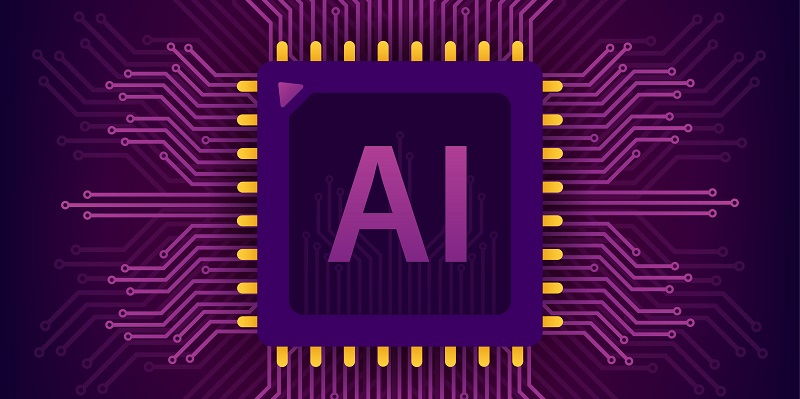In recent years, the rise of artificial intelligence (AI) has revolutionized various industries, including content generation. AI-driven systems are increasingly being used to streamline and enhance the content creation process. While these advancements have led to improved productivity and cost-efficiency, questions arise regarding the potential consequences of relying heavily on AI in content generation. This article explores the delicate balance between the cost of saved labor and the loss of human insight, analyzing the increasing sophistication of AI-driven writing tools, the challenge of repetitive content, the role of AI in user engagement, optimizing content for individual preferences, maximizing human voices with AI assistance, leveraging AI-powered headline generators, the experiences of early AI adopters, and the future of high-value content in the face of AI’s rapid advancements.
The cost of saved labor vs. the loss of human insight in AI-driven content generation
As AI technologies advance, they promise to automate repetitive and time-consuming tasks involved in content generation. However, it is essential to consider the potential drawbacks of relying solely on AI. Human insight plays a pivotal role in the creative process, offering valuable perspectives and ensuring that content is tailored to specific audiences. The challenge lies in finding a balance that maximizes efficiency without sacrificing the unique qualities that human contributors bring to the table.
The increasing sophistication of AI-driven writing tools
Many users have embraced AI-driven writing tools as a means to enhance their content creation process. These tools have evolved from simple prompts to complex systems capable of generating high-quality, contextually appropriate content. As AI technologies continue to advance, these tools are anticipated to become even more sophisticated, further augmenting the content generation process.
Potential issues with repetitive content due to AI models incorporating content from other AI models
One concern with relying heavily on AI is the emergence of repetitive content. As AI models incorporate more content from other AI models, including themselves, there is a risk of generating content that is unoriginal or lacking diversity. To address this, it is crucial to continuously inject diverse perspectives and human insights into the content generation process to maintain authenticity and uniqueness.
AI’s role in helping users engage with content
AI not only aids in content generation but also has the potential to enhance user engagement. By adapting content language and formatting to the preferences and mediums of users, AI can deliver a personalized and immersive experience. This tailored approach ensures that users can easily engage with and consume content, ultimately improving their overall experience.
The ability of AI to adapt content to user preferences and the medium of access
With AI technology, content can be dynamically adapted to suit individual user preferences and the mediums through which they access it. This adaptability extends beyond language and includes formatting, visuals, and interactive elements. By catering to diverse user needs and preferences, AI-driven content can foster deeper connections and increase overall engagement.
Maximizing the impact of human voices with AI assistance
Acknowledging the value of human insight and perspective, it is vital to recognize the ways in which AI can amplify and maximize the impact of these voices. AI can assist human content creators by providing data-driven insights, suggesting improvements, and increasing productivity. When human and AI collaboration is leveraged effectively, the result is a potent combination of creativity and efficiency.
Using AI-powered headline generators to optimize content distribution
An effective headline is crucial for content distribution, as it captures attention and entices users to engage further. AI-powered headline generators offer the ability to instantly generate a range of compelling, medium-specific headlines. By leveraging these tools, content creators can optimize their reach and impact across various platforms.
The initial excitement and subsequent disappointment of early AI adopters
The early adopters of AI in content generation were filled with enthusiasm about its potential. However, some encountered unexpected challenges and limitations. While AI has made notable strides, it is not without flaws. Understanding the limitations and learning from early adopters’ experiences is vital to navigate the evolving landscape of AI in content generation.
The potential of AI to improve productivity and cost-efficiency in content production cannot be denied. By automating repetitive tasks, AI frees content creators to focus on more nuanced aspects of their work. This increased efficiency allows for higher content output in a shorter timeframe, ultimately translating into a competitive advantage.
The future of high-value content and the uncertain role of AI
While AI continues to transform content generation, the importance of human input in creating high-value content remains indispensable. Authenticity, creativity, and the ability to connect emotionally with audiences are areas where human contributors excel. Although AI can assist and augment the process significantly, there will likely always be a need for human insight and perspectives to create content that truly resonates.
The landscape of AI in content generation is complex and rapidly evolving. While AI offers immense potential to enhance productivity and cost-efficiency, it is crucial to strike a delicate balance between leveraging AI-driven tools and maintaining the invaluable human touch. By maximizing the impact of human voices and actively addressing the challenges associated with repetitive content and the limitations of AI capabilities, content creators can harness the power of AI while continuing to deliver high-value, engaging content to audiences worldwide. As we look ahead, it is essential to adapt and evolve alongside AI advancements, embracing its benefits and recognizing the enduring value of human ingenuity in content creation.

